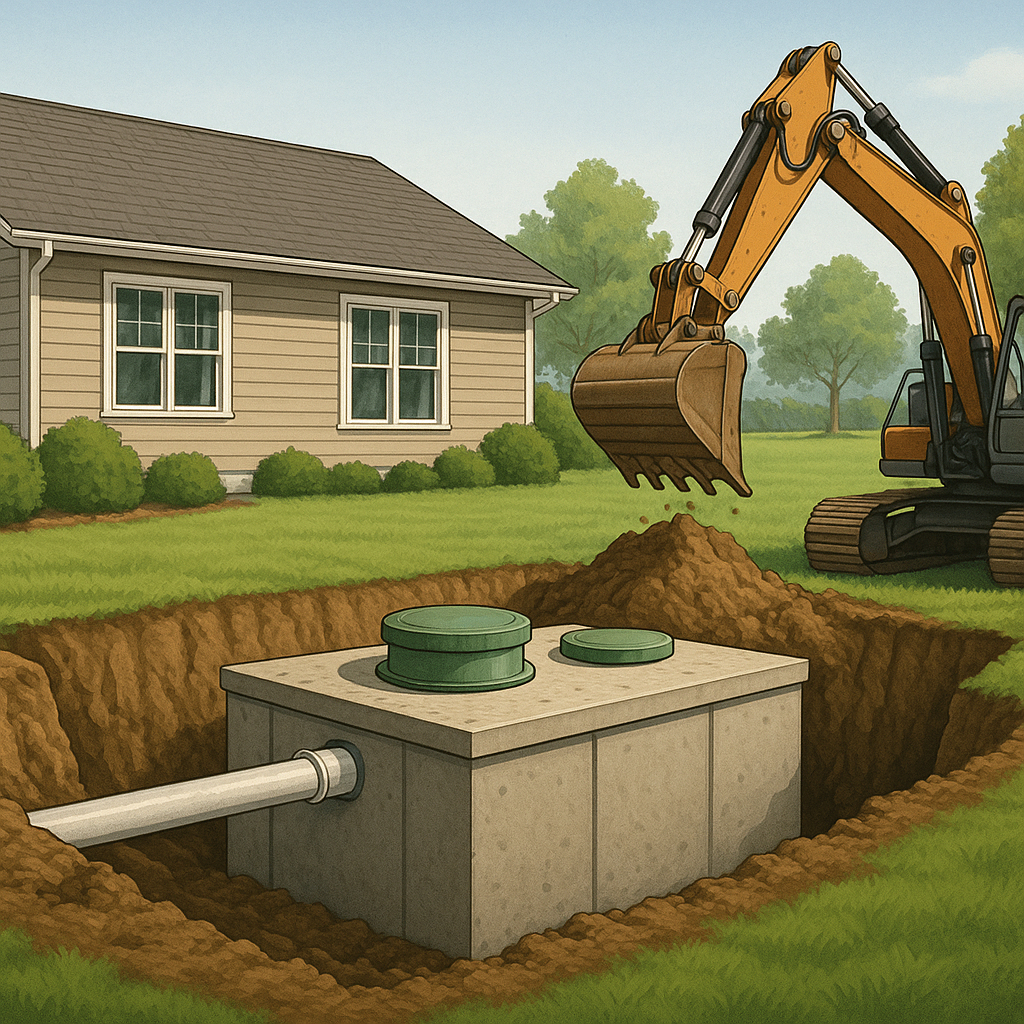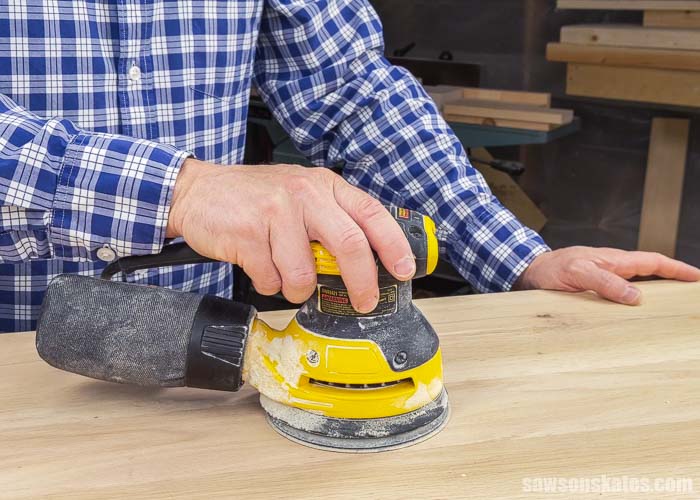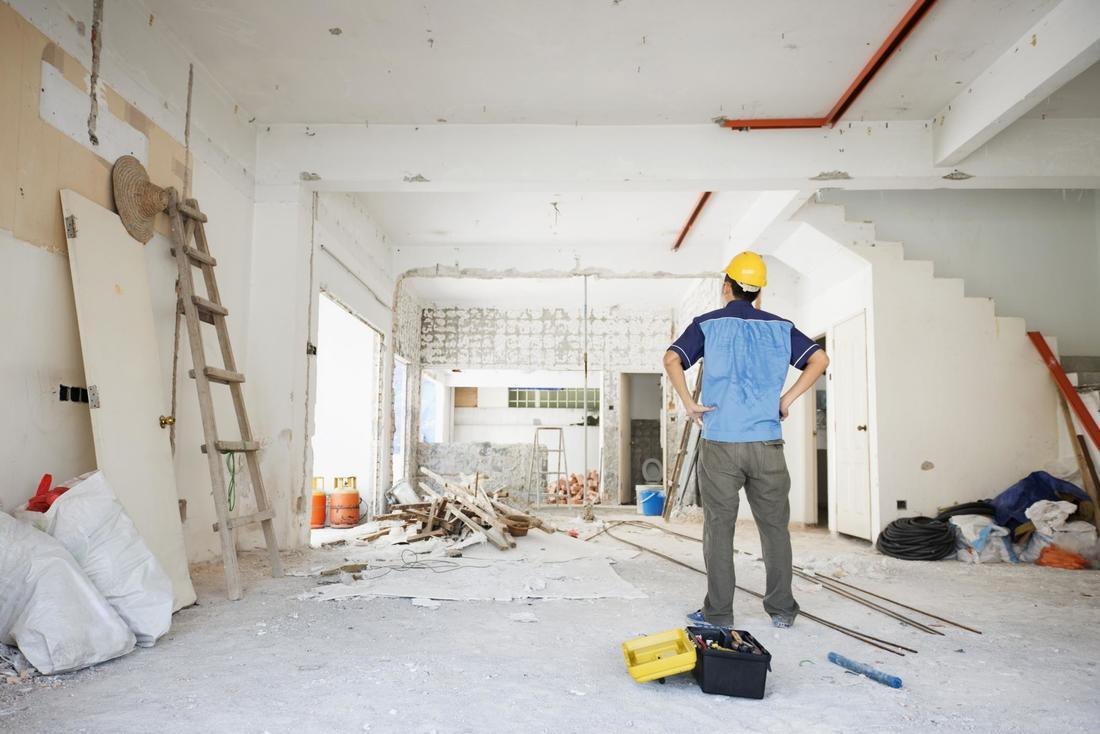Homeowners looking to increase property value often focus on kitchen remodels, bathroom upgrades, or landscaping. However, one critical component that’s frequently overlooked is the septic system. If you’ve found yourself wondering, “does a new septic system add value?” — the short answer is yes, but the long answer depends on several key factors. From improving property function and ensuring environmental compliance to influencing buyer confidence, a new septic system can be a game-changer for resale and long-term cost savings.
In this comprehensive guide, we’ll explore how a new septic system impacts home value, when it’s worth the investment, and what you should consider before replacing an old system.
Understanding the Basics of a Septic System
What Is a Septic System?
A septic system is an underground wastewater treatment structure commonly used in rural areas without centralized sewer systems. It typically consists of a septic tank and a drainfield (also called a leach field).
When Do You Need a New System?
- Your current system is outdated or failing
- Local regulations require upgrades
- You’re planning a major home renovation
- You’re selling your home and inspections reveal issues
How a New Septic System Affects Property Value
Increased Marketability
A new septic system assures prospective buyers that they won’t have to deal with immediate repairs or replacement. This peace of mind can make your property more attractive and justify a higher asking price.
Compliance with Modern Standards
Outdated systems may not comply with current environmental and safety regulations. Replacing them ensures compliance, which is often necessary to close a sale.
Higher Appraisal Value
Appraisers consider the condition of a septic system when determining a home’s worth. A brand-new system can positively impact the appraisal value, especially in areas where septic infrastructure is vital.
ROI: Does It Pay Off Financially?
Cost vs. Value
Installing a new septic system typically costs between $5,000 and $15,000, depending on the location, soil type, and system size. While it may not offer a dollar-for-dollar return like a kitchen remodel, it can:
- Prevent the loss of a sale
- Justify a higher list price
- Reduce time on market
Long-Term Savings
New systems are more efficient, reducing maintenance costs and potential repairs. This adds long-term value, particularly for buyers thinking about ongoing expenses.
Factors That Influence the Impact on Value
Location
In rural or semi-rural areas where public sewer access is unavailable, a high-functioning septic system is essential. In such cases, its condition heavily influences market value.
Age of Existing System
If the current system is nearing the end of its life (typically 25-30 years), replacement adds significant appeal and can be a strong selling point.
Buyer Awareness
Informed buyers will likely ask for inspection reports and consider septic health in their purchasing decisions. A new system removes a major point of concern.
Home Type and Size
Larger homes that accommodate more people may require higher-capacity systems. Upgrading to meet the needs of modern families can make the home more functional and marketable.
Common Questions About Septic and Home Value
Can a bad septic system lower my home’s value?
Yes. A failing system can deter buyers, delay closings, and decrease your home’s appraised value.
Should I replace the septic system before selling?
If your current system is problematic or fails inspection, replacing it before listing can prevent lost deals and may increase your final selling price.
Is a septic system a dealbreaker for buyers?
Not usually—especially in rural areas—but a poorly maintained or non-compliant system can be. A new or well-maintained one can even be a selling advantage.
Expert Recommendations Before Replacing Your Septic System
Conduct a Professional Inspection
Hire a licensed septic inspector to assess your current system. Their report will guide whether repairs or full replacement is needed.
Understand Local Regulations
Permit requirements and system standards vary by location. Consult local authorities to ensure compliance with zoning and health codes.
Choose the Right System Type
Options include:
- Conventional gravity systems
- Pressure distribution systems
- Mound systems (for poor soil conditions)
- Aerobic treatment units (ATUs)
Consult a licensed septic contractor to choose the best type based on your lot, soil, and household size.
Maintenance Tips to Preserve Your Septic System
- Pump your septic tank every 3–5 years
- Avoid flushing non-biodegradable items
- Use water-efficient appliances
- Keep records of maintenance and inspections
These habits ensure your investment holds its value and avoids future repair costs.
Conclusion: So, Does a New Septic System Add Value?
Yes—a new septic system can add measurable and perceived value to your home, especially in rural areas where no sewer connection exists. While it may not dramatically increase home value in every case, it can prevent deals from falling through, boost buyer confidence, and lead to a smoother, faster sale.




